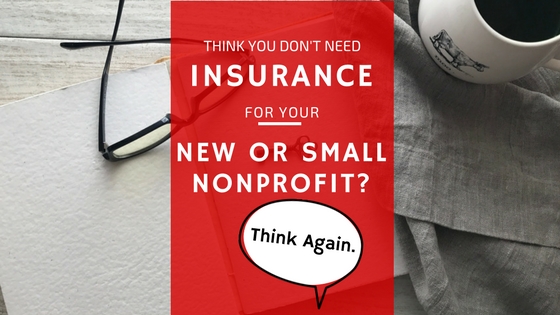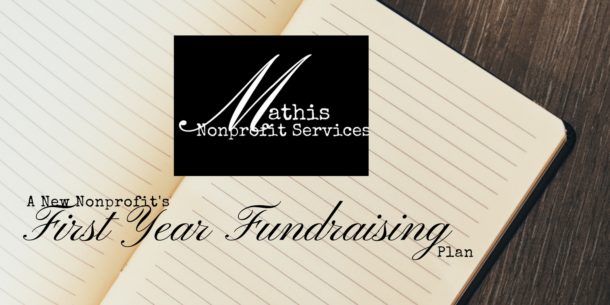Recently I sat down with Sandi Purinton, owner of The Insurance Connection, to get the insurance answers new and small nonprofits need to know. As most nonprofits are beginning to think about a budget for 2018, these answers come at a good time. Insurance is an important budget item of successful nonprofits.
My clients are small nonprofits under $1 million in budget and less than 10 employees. Why do they need insurance?
Well, any Georgia nonprofit with 3 or more employees is required to have worker’s compensation insurance per law. Georgia actually requires that officers are counted to determine the number of employees in the business, even if they are not compensated. If you think about it, almost every nonprofit has at least 3 officers, making them required to carry worker’s compensation insurance. Your clients can find more information on worker’s compensation requirements on the State Board of Worker’s Compensation FAQ page.
Regarding other types of insurance, if your nonprofit is operating and carrying out its mission, it stands to lose something if not properly protected. That loss could be financial. It could be a devastating loss to their reputation. It’s not only important to be insured. It’s important to develop risk management procedures and practices that protect the organization from litigation; protect its clients and employees; protect the organization’s mission and reputation; and additionally, protect the organization’s assets.
Small nonprofit means small budget. What are the top 3 types of insurance you would recommend for a small nonprofit on a budget and why?
I. Directors and Officers (D&O) Insurance – Your directors and officers give a lot to your organization. By doing so, they put themselves at risk personally. If the board of directors makes a decision that brings about a lawsuit, your board members can each be named personally in a lawsuit filed against the organization.
So, maybe your board is on the up and up and is above reproach? D&O insurance pays for court costs that may be necessary even when someone makes an allegation that later turns out to be false. Sometimes this insurance coverage can be added as an endorsement to a General Liability policy. You can also get stand-alone D&O coverage through some carriers.
II. General Liability Insurance – This is what is going to be required when your nonprofit wants to use a public facility or get a grant or contract that requires insurance. Sometimes nonprofits wait until these requirements arise to shop for such a policy. In the insurance industry, this is often referred to as a “slip and fall” insurance policy. If a guest or volunteer falls or otherwise gets hurt at an event you’re hosting, this is the policy that would cover it. It covers defense costs if the organization is sued as a result of that injury. It may be exactly what you need to cover your fundraising or special events (read your policy’s exclusions to make sure events are not listed as an exclusion). It also covers any complaints or allegations of libel and advertising injury.
III. I don’t have a clear third for you. I think your specific organization would need to talk to a knowledgeable agent regarding your needs. As I mentioned before, most nonprofits need a worker’s compensation policy. Your organization may need an automobile policy, or it may be important to package coverage for your buildings and/or furnishings with your general liability policy. If you have professionals working for your organization, such as social workers, doctors, and/or veterinarians, you may need professional liability coverage as well. Does your nonprofit work with children? Do you need sexual misconduct coverage? It’s best to let an expert assist you in assessing your needs.
When is a good time to get insurance?
If you are a new nonprofit and you are trying to gauge when your organization should get insurance coverage, I would suggest that you get it as soon as possible, but no later than three years of beginning operations. When insurers are rating nonprofits (calculating their premium), they often take revenues into consideration. Meaning the lower your revenues, the lower your premium. Just because you are not generating a lot of revenue doesn’t mean that you don’t “need” insurance.
At any point your organization begins to solicit others’ money and services or offer services, there is the risk of acting irresponsibly or negligently (often unknowingly) with those monies and services which can pose a risk to the organization. The longer you go uninsured, the greater the risk you pose to insurance carriers down the line. This can make finding a standard insurer with competitive rates more difficult. Your organization may have to be placed in an excess and surplus market, potentially compromising coverage and likely increasing the rate.
So it’s important to understand the long term consequence of not obtaining coverage because you initially thought you were too small and new to obtain coverage. I bet you didn’t wait years to insure your home, did you?
After an organization decides they need insurance, how do they go about getting it?
Of course, I think any nonprofit seeking coverage in the state of Georgia should reach out to me. 🙂 In all seriousness, I think your organizations want to look for agents and/or carriers that specialize in nonprofit insurance. They can reach out to other nonprofits that they collaborate with to see who they use and trust. They can look to professionals such as yourself to see who you recommend. There are so many different coverages available, they want to look to an agent who can educate them while finding them comprehensive, competitive coverage.
If anyone has more questions, how can they get them answered?
I am always happy to consult with any nonprofit to help them identify areas of risk as well as provide them with an insurance quote. My services to the nonprofit are free. There are also numerous organizations that also help nonprofits identify resources. Please feel free to contact me at 678-439-8757 or sandi@insconnectga.com.
- Pro Bono Partnership of Atlanta – This is a local nonprofit that provides great risk management and legal resources to nonprofits.
- GuideOne – GuideOne is one of the leading insurers of churches and nonprofits. They offer great risk management resources as well as insurance products and services.
- The Insurance Connection – The Insurance Connection is an insurance agency dedicated to serving nonprofits, churches, and schools.
- The Foundation Center – The foundation center has resources on risk management as well as a treasure trove of statistics that may be helpful in applying for grants and contracts.
Sandi Purinton is the owner of The Insurance Connection based in Acworth, Georgia. She specializes in writing nonprofits and churches. Prior to working in the insurance industry, she worked as a paralegal, giving her unique insight into legal challenges organizations face as well as insurance protections provided to combat those.
Disclaimer: This material is for information only and is not intended to provide legal or professional advice. You are encouraged to consult with your own attorney or other expert consultants for a professional opinion specific to your situation. The Insurance Connection welcomes all applications, without regard to religion, race, color, national origin, sex, handicap or familial status.


 Most nonprofit leaders lay awake at night trying to figure out how to fund their mission.
Hi! I'm Alesha.
I teach sustainable fundraising in a way that they can take action today so they can serve their clients.
I can help you move from just getting started funding your new nonprofit to gaining confidence in your fundraising and building relationships to knowing what works for your organization and looking at the infinite game when it comes to funding. I’ve worked with nonprofit Founders and written the book I HAVE MY 501(C)3! NOW WHAT?!? Your Blueprint to Starting Your Nonprofit Without Being the Sole Funder that lays the foundations for funding in a new nonprofit.
I’ve worked in Development (Fundraising) Departments in large organizations and I know the no cost, low-cost methods they use to bring in funding. I bring those sound strategies to the nonprofits I serve.
Most nonprofit leaders lay awake at night trying to figure out how to fund their mission.
Hi! I'm Alesha.
I teach sustainable fundraising in a way that they can take action today so they can serve their clients.
I can help you move from just getting started funding your new nonprofit to gaining confidence in your fundraising and building relationships to knowing what works for your organization and looking at the infinite game when it comes to funding. I’ve worked with nonprofit Founders and written the book I HAVE MY 501(C)3! NOW WHAT?!? Your Blueprint to Starting Your Nonprofit Without Being the Sole Funder that lays the foundations for funding in a new nonprofit.
I’ve worked in Development (Fundraising) Departments in large organizations and I know the no cost, low-cost methods they use to bring in funding. I bring those sound strategies to the nonprofits I serve.